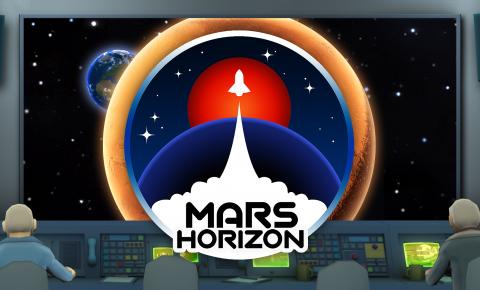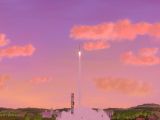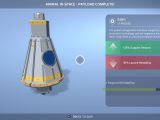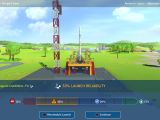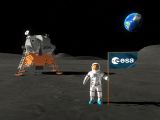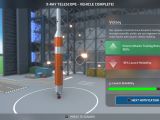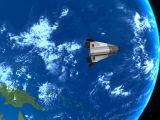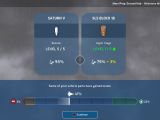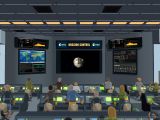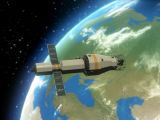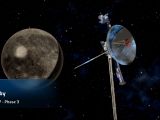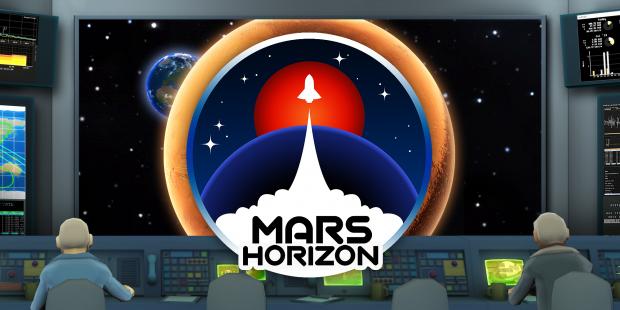Nerds, geeks, and pseudo scientists rejoice! Mars Horizon is finally here allowing you to control the entire space program of Nasa. You will develop technologies, build space ships and rockets, and survey the cold and unforgiving space. In theory, it all sounds good but can it be translated into a management game with puzzle elements? Read on to find out.
Unfortunately, lately, we did not see many games to be inspired by our constant aspiration to reach the stars. Of course, there is Kerbal Space Program, but its humorous setting and child-friendly approach make it hard to digest for some. Mars Horizon comes to the rescue proposing that you take control of every aspect that pertains to the management of one of the major space agencies. Next to the all-star NASA, you can choose from ESA, the Russian, the Chinese, or the Japanese space program. Each comes with its own perks and bonuses, making it suitable for different approaches. If you are not satisfied with any of them you can start your own space program with custom settings.
The goal is simple: win the race to Mars by being the first to send humans to the Red Planet. The road to this goal is long and full of challenges since the game’s starting point is 1958, a period where technology compared to modern standards was rather rudimentary. So you will have to take matters into your own hands and decide how to evolve to explore our solar system. Being a management game means in most cases balancing and investing smartly the resources at your disposal. To make matters easier to handle the game is turn-based, each turn advancing the game’s timeline by one month. Alternatively, you can jump directly to the next event, a feature useful in later stages of the game when there is not so much left to do.
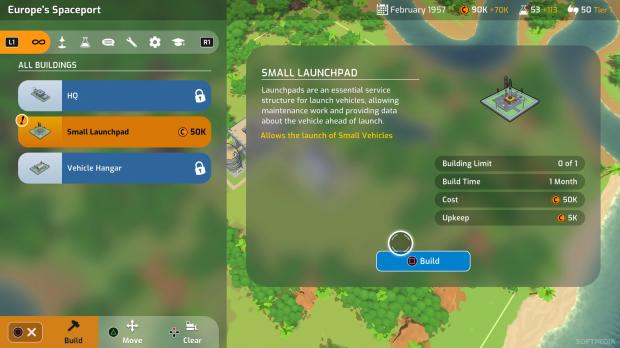
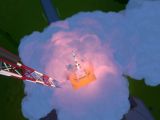

You have three different major resources you have to manage. First is the money necessary to build rockets and buildings, pay salaries, and maintenance fees. Then there are the science points necessary to develop new technologies, split into three categories: missions, buildings, and vehicles. And last but not least there is public support that determines your standing from evaluation to evaluation. More support means better performance reviews which in turn leads to increased funding. All three resources go hand in hand and you need to keep the fragile balance between them. So do the different technology trees, missions being equally important as buildings and upgraded vehicle parts.
After the mixed reception of BO IIII, to put it mildly, now Treyarch decided to take us back to the period of Cold War, a very fascinating period if you happen to live in Europe, especially Eastern Europe, and a mythical tale if you call the USA your home. The story revolves around Perseus, a legendary spy, who single-handedly can change the outcome of the war. With a nuclear missile in his possession, this mysterious villain plans to frame America for an attack on Europe, thus making the Soviet Union the hero that saves the day.
The story although short has some bite to it trying to imitate a spy story, where the clever and fiendish agents are replaced by cowboys with an itchy trigger finger. At least until the end when everything turns upside down and you are left with a somewhat bitter taste. After completing the first sounding rocket tests and stepping outside the Earth’s atmosphere you will have to deal not just with milestone missions greatly advancing the space race, but also with requests that if completed will bring you extra resources so necessary to get ahead in the race.
No matter the agency you chose, the others will compete with you, controlled by an AI. Based on the difficulty setting you have selected at the beginning of the game the other agencies may be better equipped with more resources, making your task increasingly difficult. The better you perform the more resources and support you will gather. On the other hand, failure will lead inevitably to decreased support and set you back.
So preparation is key, especially when it comes to building the necessary rockets. Sadly, the building process is quite basic, requiring one to choose from a series of pre-sets for the payload. After being built, you will have to assemble the rocket itself by choosing its top and bottom. Although technically accurate, there is not a great variety of components to choose from.
Furthermore, the components are leveled up as the result of successful missions, so you will tend to choose more reliable, cheaper, and rocket components that faster to build instead of the new discoveries. Only n later stages of the game, when exploring the outskirts of our solar system will you be forced to go for the latest inventions since those offer more thrust.
When you have your rocket ready you have to select the appropriate launch window and pray that your build will hold up in face of the unforeseen events that can occur during launch. The most important role in this task is attributed to the reliability of the vehicle you have built, but there is also the weather condition, the experience of your astronauts, and the bad luck. Even the best-prepared missions can fail due to unforeseen events. Once you reached space the reliability of your space module becomes even more important since you will have to conduct some experiments or actions presented as puzzle games.
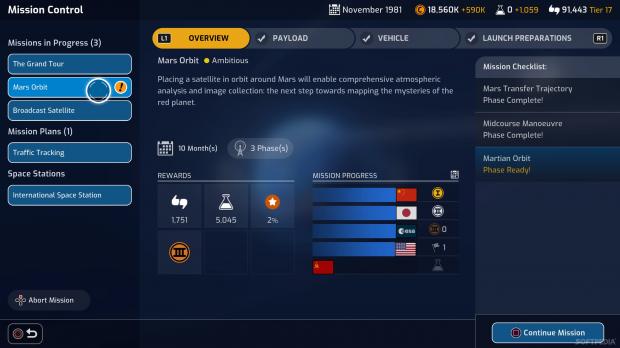
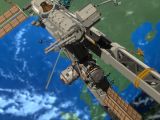
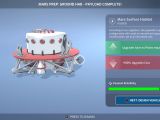
During a limited number of turns, you have to execute some actions to gather the necessary metrics so the mission will be considered fulfilled. The more reliable your payload the less chance for these actions to backfire. If bad luck or reduced reliability struck you can use energy to fulfill the planned action but this may mess up your entire management process. Most of these puzzle games can be solved automatically, for those who don’t want to be bothered by it. But by actually taking time to solve the puzzles you can accomplish the bonus objectives as well that are rewarded with an increased gain of resources.
Mars Horizon features complex gameplay that can be scary at first, but it is structured in a manner that makes sense and can be easily overseen after completing the tutorial. The major problem is the difficulty of the game. On very easy and easy things are fine, you can finish first most of the objectives if not all. on higher difficulty settings you are most likely to hit certain walls that will make it impossible for you to progress further in time to keep up with the other agencies. The money will always be an issue, and while your discoveries will keep advancing you will not have enough monetary reserves to build the new rockets and buildings. This can quickly lead to frustration and take away the fun a game is supposed to offer.
Graphically the game is far from a masterpiece, and most of the scenes are pretty static. You will spend most of the time looking and interacting with menus, no matter if you are planning or actually conducting missions in space. The cutscenes are lacking in detail and some of them are straight ugly. There is not much to say about the music or the sounds of the game, they blend well in the background.
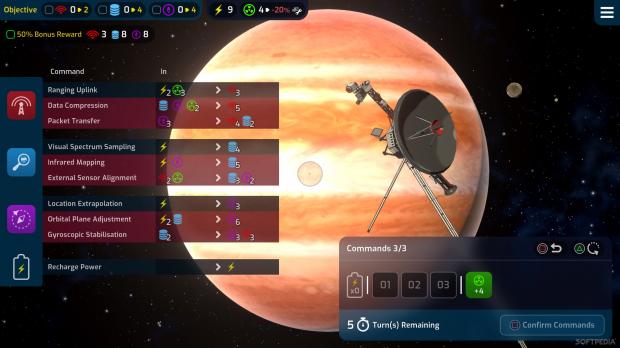

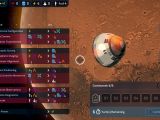
The Good
- Spacepedia full of interesting information
- The initial wonder of discovery
- Accessible and easy to use menus
The Bad
- Simplistic and sometimes ugly graphics
- Unbalanced economic system
- Repetitive gameplay
Conclusion
In the end, Mars Horizon turns out to be quite a simple game, despite the initial complex impression. Because of the repetitive gameplay, although the game has replay value, most players will be rather bothered by the end they finish the race to Mars and will not be tempted to try again. It is worth a try if you are a fan of space exploration, but curb your enthusiasm regarding the fun the game can provide.
 14 DAY TRIAL //
14 DAY TRIAL // 